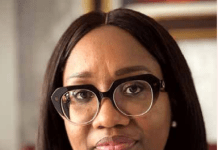
Dr Anthony C. Ikeme is the immediate past president, Nigerian Association of Pharmacists and Pharmaceutical Scientists in the Americas (NAPPSA). He is also the founder, Clintriad Nigeria Ltd. An international resource person and member of the board of the Association for Good Clinical Practices in Nigeria (AGCPN), Ikeme has served in leadership capacities for various AGCPN transformational initiatives, including being chair of AGCPN-NAFDAC clinical Trial Capacity Building Workshop Taskforce (2010), co-chair of the AGCPN-NAFDAC Clinical Trial Technical Working Group (CTWG), and the programme coordinator of the All-Africa Clinical Trial Summit.
In this exclusive interview with TEMITOPE OBAYENDO, Ikeme challenges pharmacists, especially those in community practice, to leverage the opportunities in natural medicines and nutritional supplements to expand the scope of their professional services to patients. He also outlines the achievements and setbacks of his tenure at NAPPSA. Excerpts below:
Congratulations on your successful tenure as president of NAPPSA. I will start by asking why you vied for the post.
Thank you for that question. My interest in the presidency of NAPPSA evolved from my observations while in the service of the association. I was introduced to NAPPSA by Dr Echeazu Ogu, one Sunday evening, at a social event in Wilmington, Delaware, exactly four days to the 2007 Inaugural NAPPSA Conference in Houston. He spoke so glowingly of the NAPPSA vision that I knew I had to attend and see this new association for myself, and I am very glad I did. I was so impressed with what I saw that I embraced everything NAPPSA and threw myself into the service of the association.
In the course of my service, I served as the programme chair, secretary of the NAPPSA Implementation Committee, secretary of Abuja Healthcare Summit Planning Committee, member of the NAPPSA Board, member of the NAPPSA Foundation Board and others. Over the course of my involvement in these endeavours, I kept feeling that NAPPSA could be more. I saw growth and transformational opportunities in all aspects of NAPPSA activities. Where many saw a mere professional association, I saw a platform that can be deployed for transformational initiatives.
So, here we were, a talented and highly accomplished group of professionals, living in one of the greatest democracies in the world, where there is a reasonable expectation that rule of law will be respected, where competence and talent is rewarded. What is stopping us from being the best we can be? What is stopping us from deploying our collective energy and talent to change our world? Nothing! Our only limits are the ones we impose on ourselves.
I saw clearly in my head how NAPPSA could serve as the catalyst, the trigger point for the transformation of the Nigerian pharmaceutical sector, Nigeria and Africa as a whole. But it was difficult to convey this understanding in my head and the passion in my heart to someone else who did not see what I saw. That was when I made the decision that it was best to practically demonstrate what I believed by serving in the capacity of NAPPSA president.
During your campaign for the presidency and during your inauguration, you listed some objectives you intended to focus on during your tenure. What would you consider as your major achievements during your presidency?
Another great question. Because of how my decision to aspire to NAPPSA presidency evolved, I came prepared with a clear vision and purpose. If there was one singular thing that formed the organisational principle for the success of my tenure, then it was the establishment of the NAPPSA 10-Year Growth Strategy Plan. Everything else flowed from it
You see, a fundamental thought that repeatedly rang in my mind throughout my years of service in NAPPSA, is the saying that if you fail to plan, then you have planned to fail. I was determined that our collective learnings and history over the many years of NAPPSA existence should be used as a basis to re-imagine the future of the association in a way that sharpens our focus and builds on our areas of strength. This was why I proposed a strategy plan.
I was very encouraged that all cadres of NAPPSA leadership at the time (including all the NAPPSA founding members, all past presidents, executive committee and NAPPSA Board members), as well as the entire NAPPSA membership embraced the vision. It was the successful establishment of that plan and the success in its early implementation that made many to consider my tenure as the beginning of what they call NAPPSA 2.0.
So what is the NAPPSA 10-Year Strategy Plan? Simply put, it is a deliberate and measurable process for driving and tracking NAPPSA’s growth in all facets of her business for the 10-year period: 2020-2030. The 10-year plan brings the future into the present, so that we can do something about it now. It helps us to simplify decisions, get everyone on the same page and ensure that our activities are aligned to our priorities. The roadmap it creates ensures that we increase our organisational footprint and maximise our impact as a professional organisation here in the USA, back home in Nigeria and around the world.
First focus in the implementation of the plan was finding the financial resources. And so, I partnered with my good friend and partner in generating ideas for NAPPSA progress, Emmanuel Ezirim who is the chair of NAPPSA B2B and the current president-elect. We hit the road on B-2-B Roadshows across the country, leading to the acceleration of growth in the membership of our B2B Network and a steep increase in the B2B revenues to NAPPSA.
The progress we made with both the B-2-B and the 5K Run fundraiser gave us confidence to launch the NAPPSA Endowment Fund, which today is well on its way to the first $1M dollar mark. We also successfully established the NAPPSA official journal, American Journal of Pharmacotherapy and Pharmaceutical Sciences (AJPPS). We are now poised to commence efforts to acquire the NAPPSA House, which will host our NAPPSA Research Institute.
Overall, our 10-Year Strategy Plan is inclusive, ensures commitment to quality, provides incentives for consistent delivery, allows for NAPPSA’s sustainability, has milestones along the way to measure the impact of our progress, and has an inbuilt dynamism to allow for continual improvements as we make progress.
Outside of the strategy plan, other notable accomplishments worth mentioning include the launch of our Young Professional Campus Outreach, to reach out to Nigerian pharmacy and pharmaceutical science students in the USA, to provide early career guidance that would inform their curriculum and internship choices as they plan their future. We launched the Young Professional Hangout Series to provide a platform for addressing real life issues and teaching those soft life skills that underpin life success and advancement to leadership positions. We established the NAPPSA Pharmaceutical Science Focus Group, designed to create programmes and projects that appeal to pharmaceutical scientists.
On the main issue that defined my tenure, the COVID-19 pandemic, NAPPSA took a front row seat. We participated in the discussion and dissemination of scientific clarity about COVID-19 through press statements, letters to Congress, government agencies, and via collaborative inter-organisational initiatives. We also stepped up to support the Nigerian healthcare community through our donation of COVID-19 diagnostics and PPE to the National Centre for Disease Control (NCDC). We successfully established NAPPSA 5K Walk/Run for both fundraising and to draw attention to healthy living.
While other organisations cancelled their annual conferences in 2020, we innovated. We hosted NAPPSA’s first ever technology-driven virtual scientific conference. We established the NAPPSA-ANPA-NANNNA Interprofessional Healthcare Webinar Series. We established the NAPPSA official news magazine: NAPPSA Digest.
It was indeed a very productive two years that have opened new doors and new possibilities for our great organisation. I am committed to continuing to contribute to build on all areas of our progress.
Nutrition and natural medicines are key aspects of healthcare gaining ground in most climes across the globe. In your own opinion, how can pharmacists leverage these areas to expand their services?
The starting point in evaluating the pharmacist’s role in every situation is to remind ourselves of their fundamental responsibility, namely to ensure the safe and appropriate use of medicines and to contribute to public health in general. Discussion about integrating nutrition and natural medicines into the pharmacists’ scope of practice and as a legitimate extension of their established roles in pharmaceutical care should be viewed through that lens.
This conversation is not new. It has been an ongoing conversation for many years, and I urge pharmacists to open their eyes to the opportunity it presents. Pharmacists have always clamoured for greater recognition for their indispensable contribution to public health in community settings where they are often the only accessible healthcare professional to the local population. That recognition comes with pharmacists taking up every opportunity to demonstrate value to the patients they see. Assuming responsibility for managing their alternative medicines use is a clear demonstration of value.
From my viewpoint, the key practice responsibilities that can be adopted by community pharmacists in relation to natural medicine, include: acknowledging and documenting patients use of these alternative medicines and supplements; being knowledgeable about the evidence-base of nutritional supplements and natural medicines consumed by their patients; ensuring appropriate and safe use of these supplements and medicines; reporting adverse reactions associated with their use; provide patient education; and being active in interprofessional communications surrounding use of supplements and natural medicines.
Given the widespread global utilisation of nutritional supplements and natural medicines, it is unarguably an international public health issue that deserves pharmacists’ involvement in its management.
Besides, Good Pharmacy Practice dictates that pharmacists should take steps to update their knowledge and skills about complementary and alternative therapies. Nutritional supplements and natural medicines fall into this category of pharmaceutical products. Pharmacists should, therefore, lead in educating their patients on the safe use and implications of alternative supplements and medicines, and especially point out any risk that maybe associated with their use.
What is your view on the employment of non-pharmacists as attendants in community pharmacies in Nigeria?
I personally think it is very necessary. Community pharmacists face a challenge striking a balance between their professional responsibilities to their patients and the non-pharmacists’ tasks necessary for the operational success of the pharmacy business. Tasks like managing the till, managing inventory, interacting with customers and answering non-pharmacist question are necessary for the smooth operation of a community pharmacy, but do not require the education and training of a pharmacist.
For the pharmacy profession to continue to grow, pharmacists need to use non-pharmacist attendant as extenders. As these attendants begin to take on more of the non-pharmacists duties, pharmacists are able to increase the time spent with patients. This model is already used successfully in the USA and should be embraced by Nigerian community pharmacists as well.











